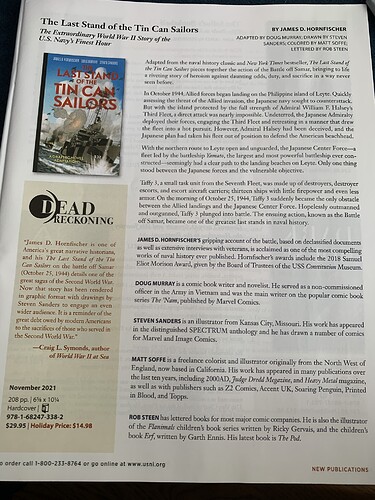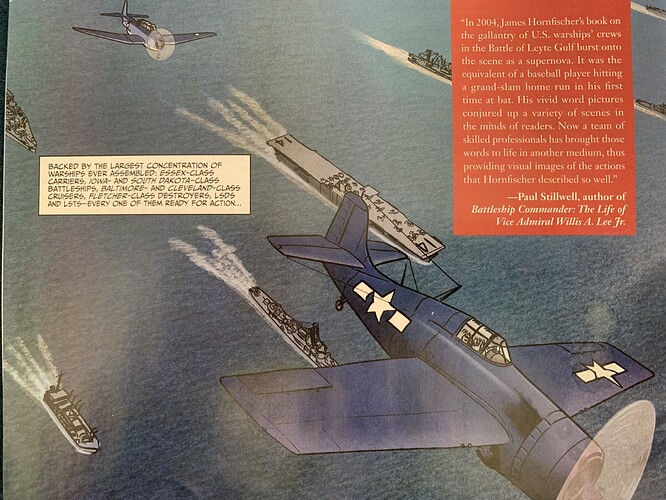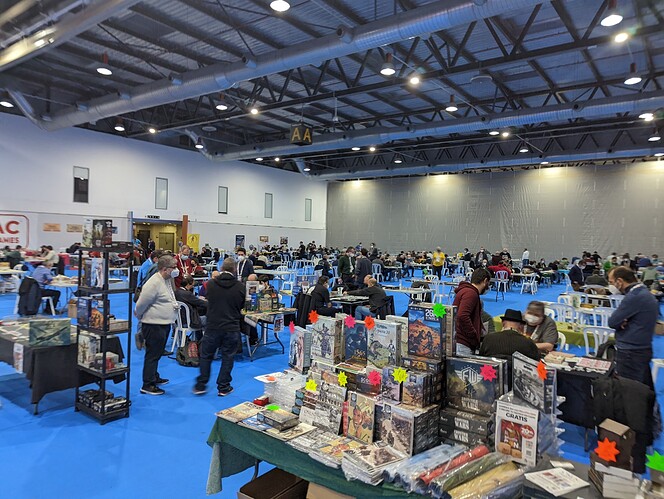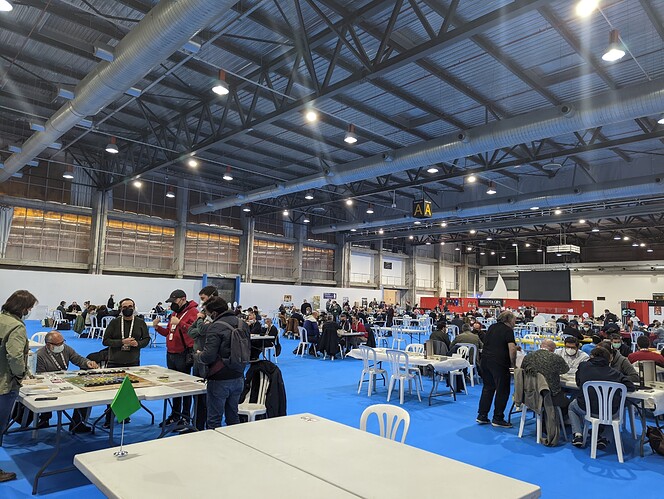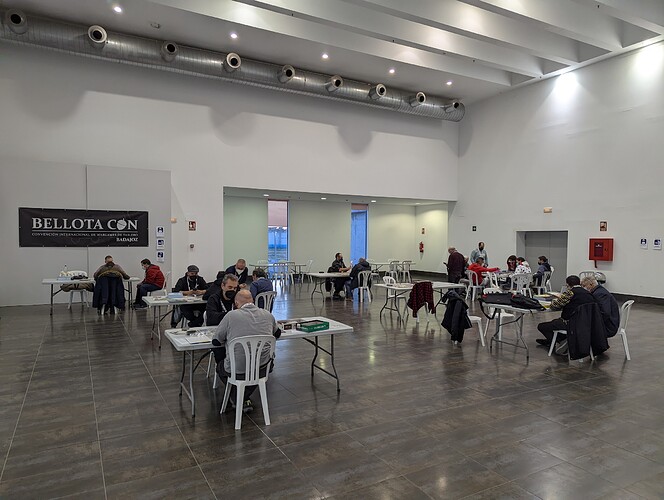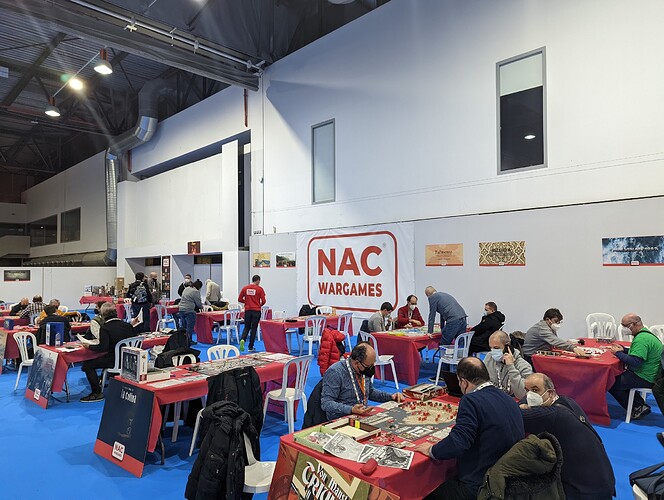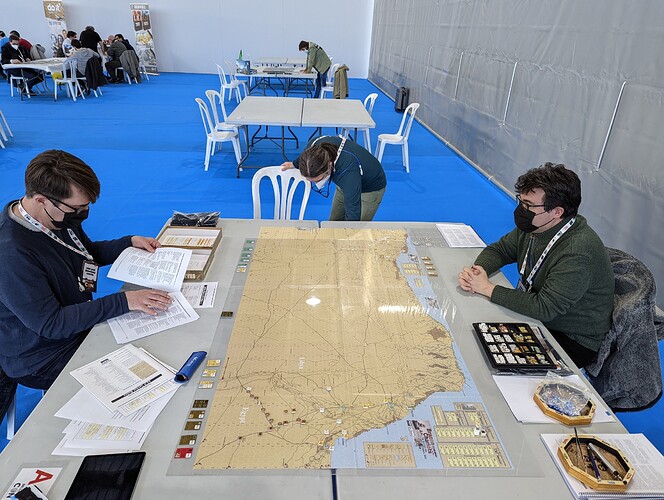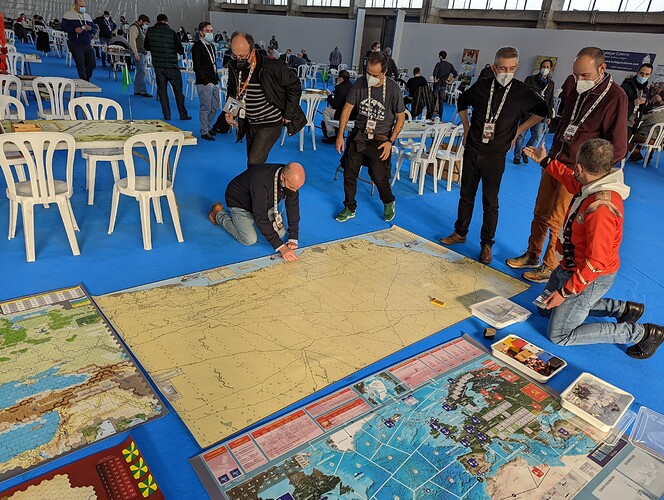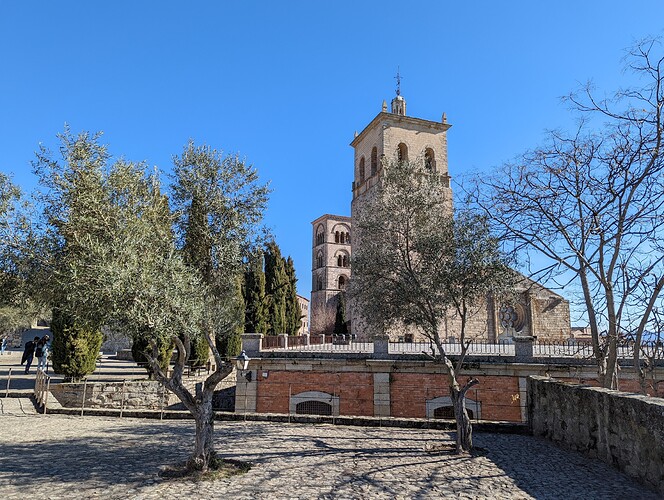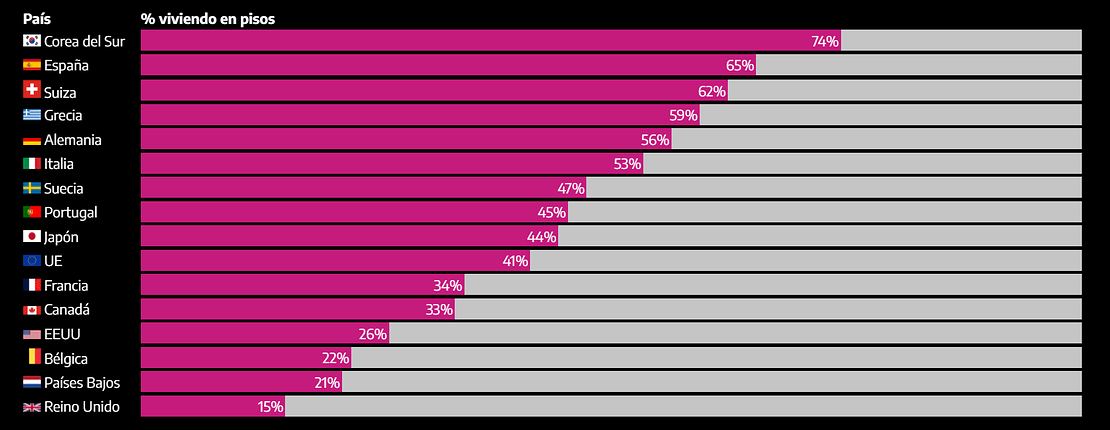AI could be the best thing to happen to computer wargaming in ages. At least until we realize we’ve taught the machines how to defeat humanity in war.
I wouldn’t be too worried.
“Commander, the enemy’s tanks have moved back and forth across the same ten-foot patch of ground for the last six hours. And the infantry keep running into the ocean and drowning.”
I’ve corresponded with Dr. Sidran in the past, though that might more accurately be “exchanged emails with.” I played his early efforts in this field way back when, and read about this new thing a while ago. Sounds really very intriguing.
Though for me the even bigger issue with computer wargames these days is their horrible UI/UX designs…
I have to strongly disagree with recommending The Hunter or The Hunted for a modernized wargame suggestion. It’s literally straight out of 1970s CRT (Combat results table) hell. Also, the rules a mqngoed mess of exceptions and If Then Elses that there is zero chance of playing it correctly your first 10 plays.
Any game that can only be played correctly with this imsane 3rd party flow chart is not a good recommendation for a good modern wargames. Instead, I wouldn’t hesitate putting both these as in the top 5 regressive games. Really really do not recommend.
…img upload not working…wtf
Speaking of massive wargames from the 1980s, anyone getting the newly renovated Pacific War from GMT Games? Shipping later this week/next week.
By the numbers:
Shipping weight: 10 pounds
Rulebooks: 3
Counter sheets: 9
Complexity Rating: 8 out of 9
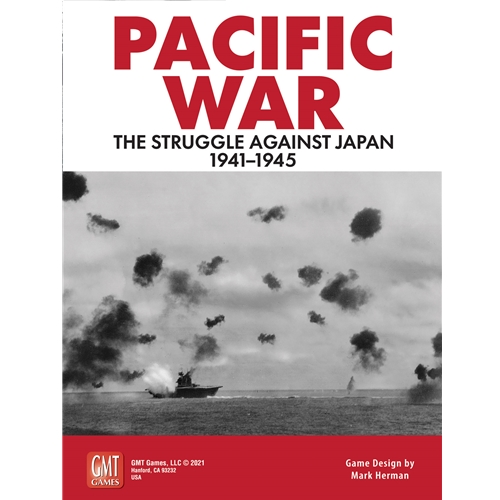
Release Empire of the Sun 4th ed you reprobates!
Pacific War games always end up seeming like exercises in logistics. Of course, that is 100% accurate, but while I do enjoy that sort of challenge sometimes, most of these games have a lot of complexity and are really large. Given that the ultimate outcome is never in doubt, and that after a certain point at best you are playing for a variation of just how badly Japan will lose, it always seems the game is not worth the candle for me.
I ordered Empire of the Sun on P500 a long time ago and it looks like it’ll finally be shipping in February.
Heh, I’ve pre-ordered Pacific War. I love Pacific War games – it’s my favorite theater of WW2. I love naval/air combat, I like ships, I like logistics, I like the Marines.
Is the outcome never in doubt? Japan hoped for some sort of negotiated settlement. But even if the utlimate outcome is known, operations during the conflict were very much in doubt: Guadalcanal, Midway, Battle of the Coral Sea, etc. Pacific War supposedly offers scenarios that model many of these engagements. And of course the “how and when” of the ultimate outcome are also in doubt.
Do you feel the same way about games about the Civil War? Or the fall of the Third Reich? Or even Vietnam? I’m not disagreeing with you, but I’m not understanding why you feel the Pacific theater is somehow unique from other conflicts modeled in wargames.
Uh-oh, here we go again! :)
-Tom
To some extent, yes, but it depends on the scale. I’m talking here about strategic level PacWar games. Games about specific campaigns or battles, those are within the ambit of a reasonable doubt as to outcomes. The grand strategy stuff suffers a lot more from the “why am I doing this?” syndrome. Though I confess I will still have fun playing the early days of the war as the Japanese sometimes.
The American Civil War is a conflict that for a lot of reasons I simply do not game any more, at least, not often. Again, though, specific battles are fine settings for games in terms off possible outcomes. The strategic level is less cut and dried IMO than WWII in the Pacific, because the war was primarily a political struggle and it was possible for much of the war for the South to achieve a political victory. But that itself carries its own problems for me. Even though my great-grandfather fought for the Confederacy, with Hardee, I find it very hard to play a game where I am invested in victory for the slavers.
Vietnam? Again, scale. Tactical/operational stuff can be tense and balanced. The broader scope is interesting, from a historical POV, but as a game, well, I cannot see any possible outcome the USA would have considered a victory that was even remotely feasible. It’s the opposite of the Civil War problem–the USA here was trying to win a military victory in a political war, and no amount of bullets was going to get that done.
I get the sense that Pacific War’s strength is in modeling specific battles in the Pacific, more so than the whole campaign.
From the Pacific War page…
The key question that I consider when buying a new game is will it hit the table? The owners and reviewers who created the game’s reputation were excited that Pacific War had a layered set of scenarios that incorporated fifteen-minute solitaire learning engagements, two hour battles (such as Coral Sea and Santa Cruz that were used in a decade of tournaments), two to eight hour Campaigns (such as Malaya, Guadalcanal and Breaking the Bismarck barrier), and of course the Strategic scenarios that cover the entire war from a single year to the entire war. Will you ever play the entire war? It’s unlikely (to date I have only done it three times). However, Pacific War is an operational level game and the Campaign scenarios are the heart and soul of this game system. Most play in an afternoon to completion. So, will it hit the table? Only you can answer that question, but from a time and learning perspective this game will support any time commitment you wish to make, to include the 100+ hour Strategic Scenario.
I guess I’m not following how any of what you describe is different from modeling a smaller scale with a lopsided likely outcome. Do you only play meeting engagements? :)
But thanks for the response. It’s surprising for me to hear you say all that, since I know you’re a longtime wargamer. It seems to me the decisive factor should be the game design and not the subject matter. The game I’ve been playing lately, D-Day at Peleliu, is also about a conflict whose outcome was never in doubt. So instead, the victory thresholds are set somewhat arbitrarily by the designer in the interest of gameplay. So long as I trust the designer, it doesn’t really matter to me what historical outcome he’s modeling.
GMT’s Navajo Wars by Joel Toppen is the example that comes to mind for me. On a larger scale, the outcome is never in doubt. And that’s kind of the point. Not necessarily that you can change the outcome, but that you can explore the possibilities within that historical framework.
-Tom
My feelings have changed a lot since I was in my wargaming prime, I admit. But to clarify, to me the scale is crucial. A game about Peleliu, or Okinawa, or Midway, those are things I could definitely get into, because it’s easy to focus on the immediate situation. Just like, say, D-Day or the Ardennes or Kharkov or whatever, in an ETO or East Front game, the broader arc of the war isn’t important really when you are focusing on a very specific engagement. Then, it makes no difference to me whether in the end Side A or Side B was going to lose; I’m playing for a very localized victory in game terms with no real consideration of the broader scope of things.
And yeah, if it’s a great game design, I can certainly play stuff at a higher strategic level where the historical outcome makes the situation grossly unbalanced, but the designer has made the game work. It’s just that the more complex a game is, and the more work it requires, the less likely I am to invest the time and energy into it, because every time I gird my loins to deal with the minutia the back of my mind keeps whispering it doesn’t matter as any victory for Side X is a chimerical point juggling trick. It’s idiosyncratic, I know, so I wouldn’t read too much into it.
I do like to explore historical alternatives, so I have a soft spot for future/hypothetical stuff sometimes, and for detailed operational/tactical games where there is room for substantial variation. And I think it is wicked cool for designers to lean into the asymmetry of a war and design a game where the outcome as such is foreordained but the value in the game is precisely that sort of alternative path to the result that you suggest with the Navajo game.
lol. Grab some popcorn
Thanks for this and looks like you were spared the shelling :) Really appreciate the distinction between a game and a simulation. Definitely looking for the former.
I keep adding and removing the VASSAL module for Hornet leader from DVG’s site since I didn’t realize these games were so rare (also there doesn’t seem to be a Sherman one). grumbles about not playing the iPad version more
Last week I attended the Bellota Con convention in Badajoz, Spain. In its 5th edition, counting last year’s online meeting, I believe it has cemented a position as the premier historical boardgaming convention in Europe.
It’s worth making the point that the Spanish wargame community is relatively young but in the last few years it has become the strongest in Europe. In particular, many designers and publishers have emerged. In an environment with little convention culture, when a modest initiative to hold a meeting in Badajoz was proposed five years ago, it was felt as something necessary and received a lot of support.[*]
This year, more than 320 people registered, although, given the Omicron wave, few more than 280 made it to Extremadura.
A few photos.
General views of the floor. They have outgrown the hotels and are now using the local convention center. With COVID, the tables were very far apart, they can fit many more people there.
Notice also a curtain in the back of the first photo, the hall is more than twice as big and there are other spaes there, like this one:
The new Spanish publisher NAC Wargames, belonging to MásQueOca, was the main sponsor. They had an impressive display with 18 tables and people to run them. Do It Games, Nuts! Publishing, Trafalgar Editions, Bellica 3rd Generation and DracoIdeas where also there presenting new releases and prototypes.
I had the chance to meet a lot of people I knew only only and to reconnect with some old friends. Unfortunately, Omicron prevented social dinners.
I kept it relatively light with my own gaming. Time of Crisis, Hands in the Sea, Friedrich, Versailles and the Brazen Chariots campaign.
Speaking of Brazen Chariots, there was a guy showing off his canvas maps for this and other games.
On my way back to Madrid, a lunch stop in Trujillo, home of many explorers and conquistadores, such as Pizarro and Orellana.
It was my first time in this convention, I’ll try to come back as often as I can. Thankfully, I can combine it with a work visit to the University of Extremadura, where I have one of my closest collaborators.
[*] N.B.: In the US, conventions have been common for a long time. In Spain, it’s much more common for grognards to belong to a club that rents space they can access any day (and where they can leave a long OCS campaign from week to week) in their town. This is true even in Madrid, I shudder to think what it would cost in the Bay Area.
Oh, this is a clip from Spanish TV news on the convention:
I want to go to Bellota Con (my mother lives in Caceres, so it would be easy) but I’ll wait until this COVID thing is done.
There is a reason for that:
As expensive as belonging to a club might be (I don’t right now because I don’t have time to have a regular boardgame schedule right now), the vast majority of Spanish people (certainly those with a family, and thus likely no spare room) do not have housing where having a single map wargame up for days is feasible. Getting an apartment in Madrid with that kind of space is even more prohibitive.
